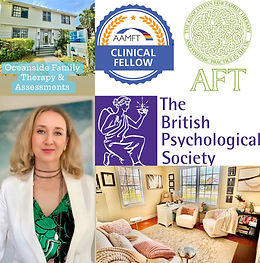

1 hr
2,500 US dollars






Forensic - involving matters that are in some way associated with the courts and legal decisions.
Forensic consulting may include, trial/jury consultation, review of psychological reports, assistance in preparation for cross examination of another mental health specialist, assistance with jury selection, biopsychosocial and mental health assessments for court use, custody evaluations, parenting coordination, substance abuse evaluations, trauma assessments, domestic violence evaluations, etc.


Mental health or psychosocial assessments and reports are useful in mitigation and dispositional planning, providing detailed and relevant background information that may be pertinent to the defendant's state of mind, and can be vital to the courts in assisting the judge or jury in well-informed decision making on the case.
The forensic evaluator must also be sensitive to the possibility of malingering among examinees - another major difference between the clinical and the forensic practice. Therefore, throughout the assessment process, objective and validated evaluations are utilized to recognize or rule out potential malingering.
In cases with criminal charges a sanity board or forensic examiner is often appointed by the court to determine whether or not the accused has a mental health defect or disease that can impact judgment in their charges or competency to stand trial. The Dusky standard tests whether the accused has sufficient present ability to consult with their lawyer with a reasonable degree of rational understanding, and whether they have a rational as well as factual understanding of the proceedings against them. (Dusky v. United States, 1960, p. 789).
In divorce and child custody cases, when there is court involvement often a therapeutic relationship can be jeopardized as the the court may seek sensitive information nullifying some confidentiality agreements and therapeutic relationship. Therefore, these cases may be better suited to a child custody evaluation, when the main goal is to provide information to the court, not treat a child within the confidential parameters of psychotherapy.
Assisting the courts with mitigation, illustrating the psychosocial evidence surrounding the defendant.
In clinical psychotherapy, the "patient" is the client. However, in the forensic mental health assessment, the court is the client. Therefore, in forensic cases, the evaluator does not act as the therapist when examining the subject. There is no therapeutic relationship with the subject or therapist/patient privilege (confidentiality). Objective measurements and data are gathered to assist the court (judge or jury) with decision making for the case.
Who benefits from Forensic Evaluations?
Numerous cases benefit from forensic mental health evaluations and psychosocial assessments a few of which may include:
-
Civil Law - personal injury cases (to assess for trauma, PTSD), etc.;
Forensic Services Offered
-
Assessments (Standardized - Personality, IQ, Psychopathology)
-
Child Custody and Visitation Evaluations
-
Domestic Violence Evaluations and Reports
-
Expert Testimony in State and Federal Courts
-
Criminal Forensic Mental Health Evaluations and Reports
-
Immigration - Petition Support Evaluations and Reports
-
Jury Selection Consultation
-
Trauma/PTSD Assessments
-
Trial Consultation




Why Forensic Mental Health Evaluations?
-
Criminal Law (to illustrate the defendant's state of mind, background, cultural influences, socioeconomic/environmental factors, IQ, educational level, substance dependency, personality issues, mental status, malingering, etc); domestic violence cases (to illustrate the defendant's background, state of mind, perpetrator vs. victim/relational issues, with utilization of specific relational assessments, in addition to psychosocial, intelligence and personality evaluations, etc.);
-
Family Law - child custody evaluations (to determine which residence is healthiest for a child/children of a divorce); parenting coordination.
-
Immigration Law, Deportation - Cancellation of Removal for Certain Permanent Residents under section 240(a) of the Immigration and Nationality Act (INA) (to illustrate the defendant's cultural background, positive impact to the U.S./desirability as a legal permanent resident, in seeking relief from deportation, including personality assessment, mental status at time of arrest, rehabilitation since, etc).
-
Immigration Law - Hardship evaluations, domestic violence evaluations and asylum seekers.
Federal Courthouse, Jacksonville, Florida
Who Pays for Services?
For forensic services, the client or attorney may choose to purchase services to help with mitigation. In federal, criminal cases the court usually reimburses the applicable fees with prior approval from the court. Fees must be paid in advance to clear the schedule for court hearings. Generally the attorney is the referral source, not the patient.
Court Appearance Policy for Non-Forensic Cases
Click Here for Policy
She also serves as an in-house consultant at Max Hunter Story, PA / Story Griffin Consumer Justice Law Firm.

Unlike traditional forensic psychology evaluations/reports, utilizing a skilled therapist combines the scientific measurements of assessment and diagnosis with a humanistic approach to evaluations. That is, paying attention to the human behind the subject - including a thorough, biopsychosocial evaluation adhering to relevant cultural, familial, educational, socioeconomic and other environmental influences.
For family law and domestic criminal cases, we offer specific training and expertise in relational matters, family systems and family violence knowledge, coupled with objective, relational measurements (for domestic disputes) and child custody evaluations. For immigration law, we offer a specific knowledge and training in cultural adjustment, refugee experiences/norms for resident aliens facing deportation.
Nicole Story, EDS, MED, LMFT, LMHC, NCC, QS-FL, is a licensed psychotherapist and qualified clinical supervisor with the Florida Department of Health Medical Quality Assurance for Chapter 491 psychotherapists. She has served as the clinical director of a local inpatient dual diagnosis program, detox and several outpatient programs; adjunct faculty at Santa Fe College; the Ethics Chair of the Florida Association for Marriage and Family Therapy; and the President of NEFAMFT. She is a Full Member of the British Psychological Society.
She has administered court ordered/forensic mental health/substance abuse evaluations and has testified numerous times in civil and criminal cases, testifying in State and Federal Courts in Duval, Alachua and Clay counties and Immigration Courts in Orlando, Miami and Atlanta for over 20 years.



